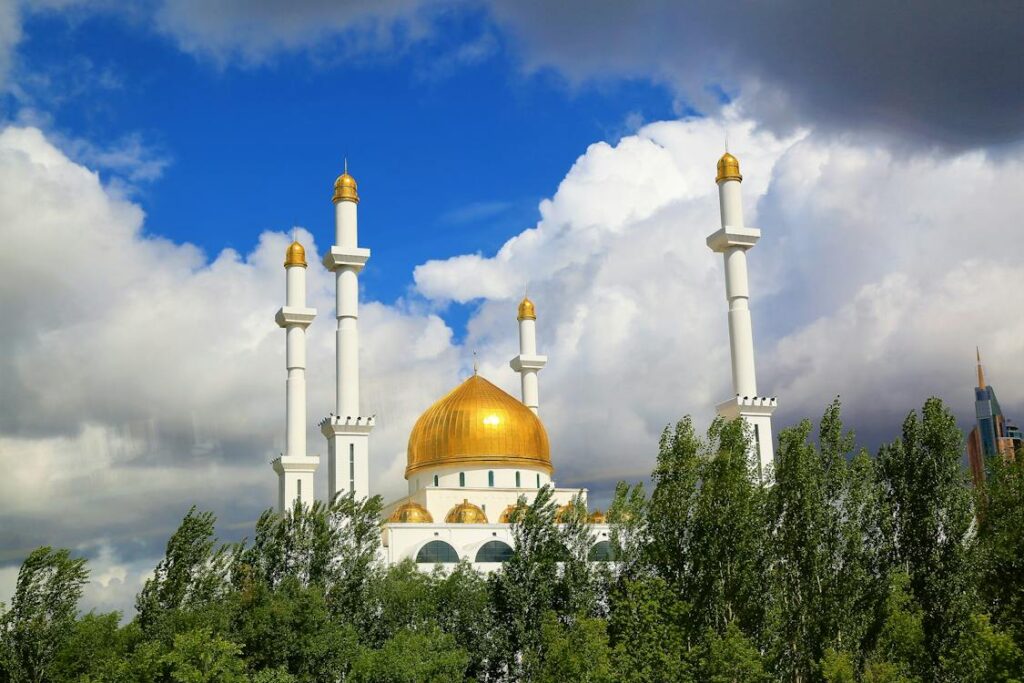Central Asia finds itself at a crossroads, facing the dual challenge of mitigating severe climate change impacts while striving to join the global shift towards a zero-carbon economy. Despite a historic reliance on fossil fuels, there are signs of a potential pivot to renewable energy sources, driven by the urgent need to address environmental degradation and global warming.
This article is a summary. Please read the original article by Rahat Sabyrbekov on Harvard University’s Davis Center for Russian and Eurasian Studies think tank website, here
Renewing Climate Commitments Amidst Fossil Fuel Dependence
Leaders across Kazakhstan, Kyrgyzstan, Tajikistan, Turkmenistan, and Uzbekistan have recently reaffirmed their dedication to combating climate change. Ambitious targets for reducing greenhouse gas emissions signal a growing recognition of the threats posed by climate change, including intense heatwaves, water shortages, and diminishing glaciers. However, the transition from policy to practice remains fraught with challenges. Central Asian economies continue to lean heavily on fossil fuels, underscoring a significant gap between aspirations and current realities.
Central Asia on the Global Stage: COP28 Participation
The collective presence of Central Asian countries at the COP28 climate conference in Dubai highlighted their commitment to addressing climate change. With over 270 speakers and 3,000 visitors, the shared pavilion showcased the region’s efforts to tackle methane emissions and promote renewable energy. Turkmenistan and Kazakhstan, in particular, have taken steps to reduce their carbon footprint and increase investments in renewable energy, setting ambitious goals for the coming decade.
Navigating Challenges to Climate Action
Central Asia’s path to sustainable development is hindered by numerous obstacles. These include limited governmental capacity to address climate impacts, infrastructure in dire need of modernization, insufficient regional cooperation on water management, and a slow pace of decarbonization. Despite these challenges, the region has vast potential for renewable energy development, including hydropower, solar, wind, and green hydrogen.
The Economic and Political Landscape of Fossil Fuel Subsidies
A critical barrier to the adoption of renewable energy in Central Asia is the high level of fossil fuel subsidies. These subsidies significantly exceed the global average, complicating efforts to transition towards greener energy sources. Political challenges, such as public unrest over fuel price increases, further complicate efforts to reduce subsidies and foster a sustainable energy transition.
A Roadmap for Sustainable Future
For Central Asia to overcome its climate and energy challenges, decisive action is needed. Prioritizing the reduction of fossil fuel subsidies, improving material efficiency, and investing in renewable energy are essential steps. Overcoming institutional weaknesses and corruption will be critical to enabling a successful transition to a sustainable and resilient future.
Conclusion
Central Asia’s journey towards a renewable energy future is fraught with difficulties, yet filled with potential. By taking bold steps to reduce reliance on fossil fuels and increase investment in renewable resources, the region can secure a place in the global effort to combat climate change. The time for action is now, as Central Asia works to ensure a sustainable and prosperous future for its people and the planet.
Check Our Staff’s Reading Suggestions Related to the Article:
- “Renewable Energy in Central Asia: Enhancing Food Security and Improving Social and Economic Conditions in Rural and Remote Areas” by Manfred A. Lange
- “Climate Change in Eurasia: Emerging Threats and Opportunities” by Natalie Koch
- “The Politics of Energy and Memory between the Baltic States and Russia” by Agnia Grigas
- “Central Asia’s Second Chance” by Martha Brill Olcott
- “Water, Energy, and Food Sustainability in the Middle East: The Sustainability Triangle” by Adnan Badran et Al.
Donation
Buy author a coffee
